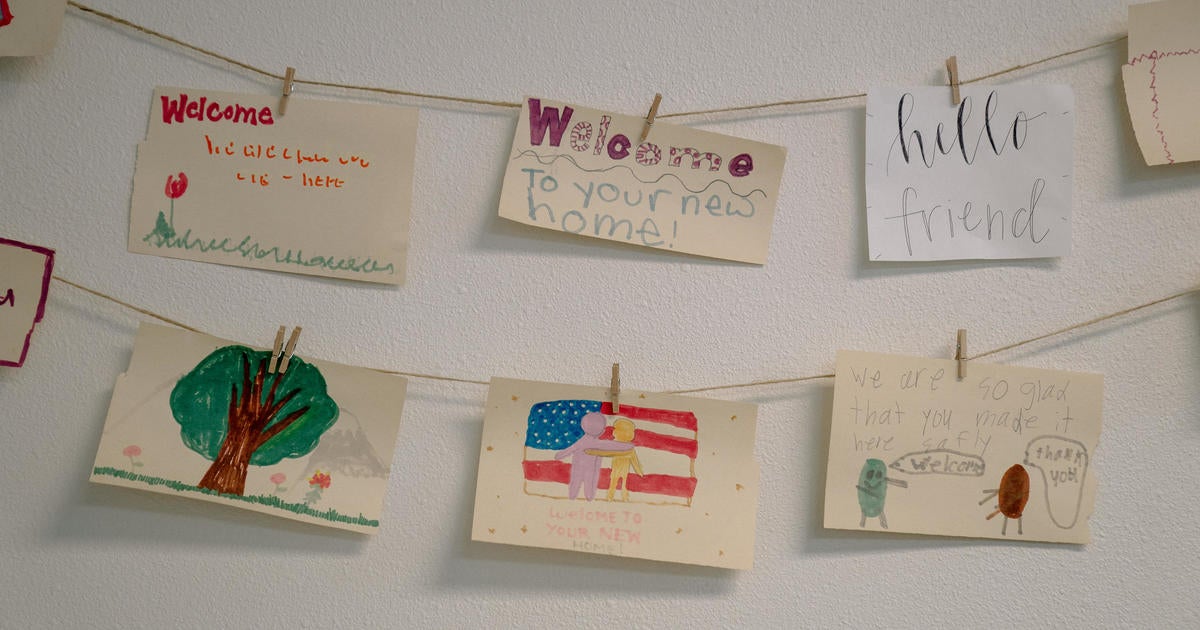The Trump administration has recently directed refugee resettlement groups to stop using certain federal funds due to the president’s suspension of American foreign aid. This directive was revealed in a U.S. State Department memo obtained by CBS News, leaving refugee advocates concerned about the impact on their efforts to integrate refugees into communities across the United States.
John Slocum, the executive director of Refugee Council USA, which is a coalition of groups supporting those displaced by violence, expressed deep concern over the funding suspension. He described the decision as “unfathomably cruel” and emphasized the potential negative effects on reception services for refugees, including Afghan Special Immigrant Visa holders who assisted the U.S. mission.
The funding freeze comes in the wake of President Trump’s executive order to indefinitely pause admissions of refugees, a decision made shortly after he took office. This pause will remain in place until the president determines that resuming refugee arrivals is in the best interests of the United States.
The suspension of funds has raised alarms among those who assist refugees, as it could hinder their ability to provide critical support to refugees already in the U.S., particularly Afghan allies who aided the American war effort in Afghanistan. Refugee advocates fear that the directive may impact the funds used by resettlement agencies to help refugees during their initial 90 days in the U.S. as part of a government-overseen reception program. This assistance includes essential services such as casework, childcare, food, housing aid, and other social services aimed at helping refugees become self-sufficient in the United States.
In response to the notice issued to resettlement agencies, many of which are faith-based organizations, some federal funding awards were immediately suspended. The memo instructed agencies to halt all work under the affected awards and refrain from incurring any new costs. They were also directed to cancel as many outstanding obligations as possible.
The exact amount of money being frozen by the Trump administration remains unclear, as the State Department has not provided information on the funding pause. Questions linger about whether the freeze affects funding for refugees already admitted into the U.S., including Afghans who received Special Immigrant Visas for their assistance to American military efforts.
While the president’s executive order prohibits refugees from all nationalities from entering the U.S., exceptions are made for Afghans with Special Immigrant Visas, allowing them to continue entering the country. This distinction underscores the complexities surrounding refugee policy and the challenges faced by those working to assist individuals seeking refuge in the United States.
The decision to suspend funding for refugee resettlement efforts has sparked outrage and concern within the advocacy community. Many believe that the move contradicts the moral and legal obligations the U.S. has towards refugees and undermines the support provided to vulnerable populations seeking safety and stability in America.
As resettlement agencies grapple with the implications of the funding freeze, they are left to navigate a challenging landscape where vital services for refugees are at risk. The uncertainty surrounding the future of refugee admissions and resettlement in the U.S. adds to the anxiety and fear experienced by those seeking refuge and the organizations dedicated to supporting them.
In the midst of these developments, the role of advocacy groups, faith-based organizations, and community partners becomes even more critical in advocating for the rights and well-being of refugees. The need for solidarity and support for those displaced by violence and persecution remains paramount, despite the challenges posed by policy changes and funding restrictions.
Moving forward, it is essential for stakeholders at all levels to continue advocating for humane and compassionate refugee policies that uphold the values of dignity, respect, and solidarity. The current situation underscores the importance of safeguarding the rights and well-being of refugees and ensuring that they receive the support and assistance they need to rebuild their lives in safety and security.









